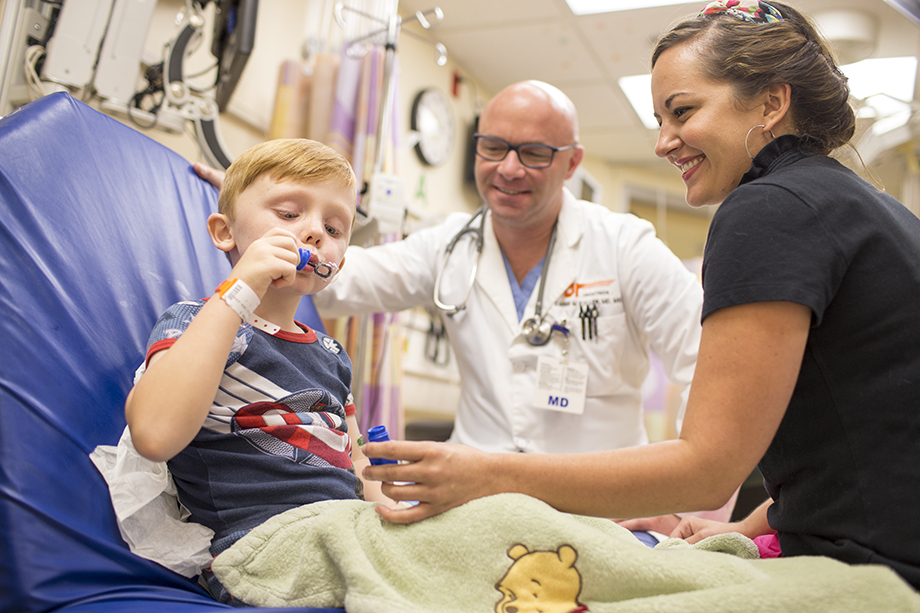Temper tantrums. Fears about the monster under the bed. Tears over getting a shot at the doctor’s office. Anyone with a little one is familiar with these emotions.
Those are just everyday emotions. When children are injured or facing an illness, they likely don’t understand what’s happening and fears are even bigger. That’s where the specialty services of a children’s hospital come into play.
In this ongoing series, we’re talking about the benefits of children’s hospitals, including Children’s Hospital at Erlanger. In part one, we discussed having clinical professionals who specialize in pediatric health, while part two focused on the importance of appropriately sized medical equipment.
Today, we’ll talk about the people who help kids — and their families — better understand and handle hospital visits.
Benefit No.3: Child life specialists
Child life specialists are professionals with training in the unique needs of children and their families when facing medical conditions. These specialists typically have a background in child development, which helps them work with children to ease their fears and concerns.
“I can’t stress enough how important child life specialists are,” said Cynthia Rhodes, R.N., M.S.N., chief nursing officer at Children’s Hospital at Erlanger. “They work with all ages of children and help to explain what’s happening on the child’s individual level — so he or she really understands what’s happening.
“They’ll talk with the child about what’s happening, why it’s happening and what to expect. And they work with the child on diversion techniques so that he or she can focus on something other than the procedure.”
Child life specialists use a variety of activities to help educate children about the procedures they’re facing and their medical condition. In addition, they also encourage kids to share their fears and emotions so that the adults around them can better help them.
More than just the child
When children visit the hospital, they don’t come alone. They’re typically accompanied by their parents or a guardian — and involving those adults in the child’s medical care is vitally important.
“Child life specialists aren’t just focusing on the child,” Rhodes said. “They’re looking at the entire family and what it needs. They work with the family to really explain what’s going on and get them oriented to the hospital environment and the situation. It’s very important for families to be involved in medical situations, including trauma, and our child life specialists play a huge role in making that possible.”
Child life specialists provide a variety of support to parents, siblings and other family members, including educational information and guidance when making health decisions.
A sadder side of child life
Child life specialists also play a role in a sadder aspect of medical care, bereavement.
“As much as we would always like to have positive outcomes, sometimes that isn’t the case,” Rhodes said. “Child life specialists help us take footprints and fingerprints, or snip a lock of hair, for families to have as a memento. This plays an important role in helping families find the closure they need. Having child life specialists available to provide this support is what sets our hospital apart.”
Learn about the child life specialists making an impact at Children’s Hospital at Erlanger in our recent A day in Child Life blog.







